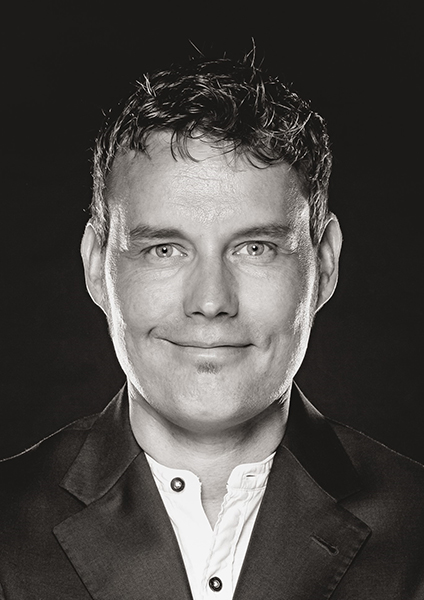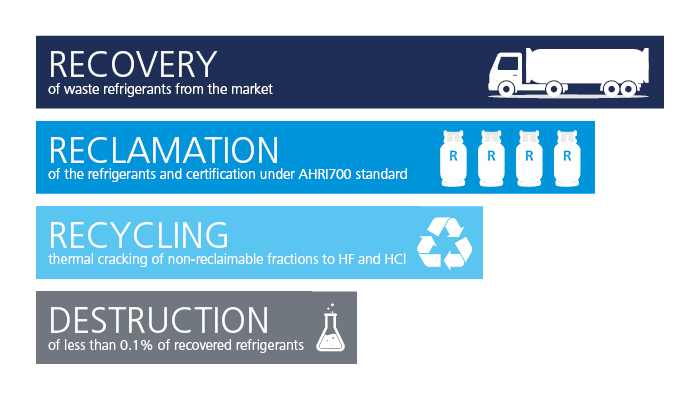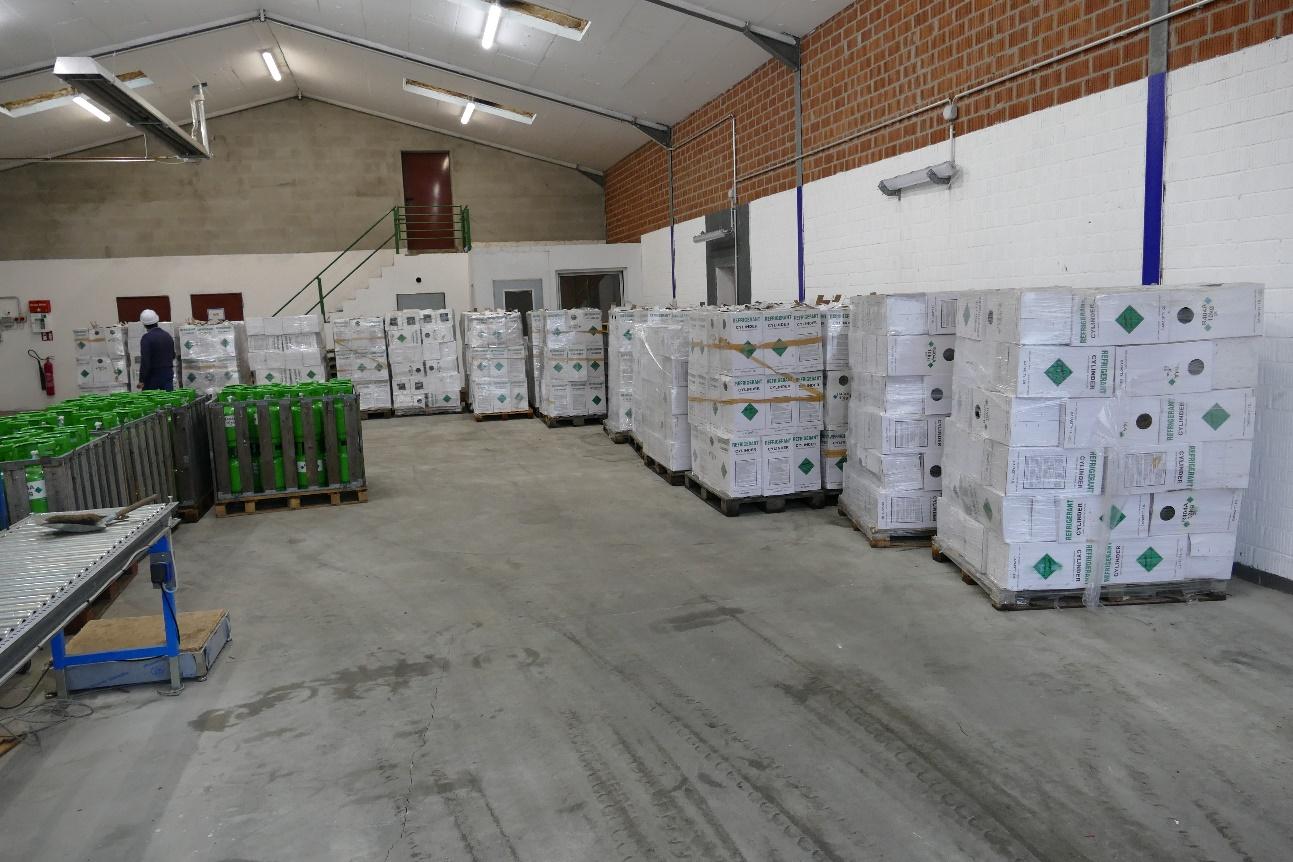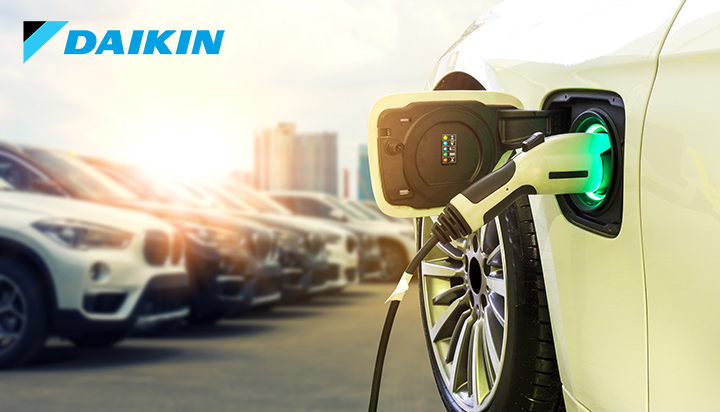Daikin Refrigerant News - Issue 3, 2021
Dear friends and partners of Daikin Chemicals,
In Germany, an amendment to the Chemicals Act to combat the illegal trade in fluorinated greenhouse gases is due on August 1st, as both the Bundestag and the Bundesrat have already approved the amendment.
In particular, the manufacturers of refrigeration systems are subject to new obligations with the change in the law, although emissions have declined in recent years as a result of the reduction in the use of legally traded fully and partially fluorinated gases. According to Germany’s Federal Statistical Office, emissions fell by up to 44% between 2015 and 2019.
In this edition of our Daikin Refrigerant Newsletter, we want to focus on this important topic.
Kind regards and enjoy reading
Your Tobias Bargsten
Business Manager Refrigerants Daikin Chemical Europe

Daikin's contribution to the Zero Waste Hierarchy

Daikin is capable of regenerating refrigerant from used products.
Zero Waste is a movement and an NGO born in 2013 to support and promote the circular economy among the products and to reduce the use of unnecessary resources, to achieve the climate goals and objectives of Zero emissions by 2050.
The movement looks for the best practices to support the environment by raising awareness of every individual person so that they make their own small contributions. At the same time it tries to involve the large distribution companies.
Daikin supports the EU - Zero Waste Movement by looking at how to minimize waste, maximize the recovery and reclamation of refrigerants and reduce the total consumption of virgin products and replace them with reclaimed refrigerants, which have exactly the same performance and properties.
Daikin’s contribution to Zero-Waste Movement
- Reduction of the refrigerant charge in the new produced equipment, which also allows a higher energy efficiency.
- Use of certified reclaimed refrigerants in the new produced machines and for maintenance works.
- Promotion of the recovery of the waste refrigerants coming from the dismantling of old units and maintenance works in the existing ones.
- Green treatment of non-reclaimable gases at the end-of-life. A thermal conversion process is carried out in Frankfurt to transform the old refrigerants into acids that will be reused in the industry as raw materials.
Please find more information here: https://zerowasteeurope.eu/what-is-zero-waste/
German Chemical Act comes into force to further curb illegal trade in HFCs

1.000 bottles of confiscated, illegal refrigerant which were disposed of by RCN Chemie and Daikin.
A new amendment to the German Chemical Act comes into force on August 1st and will increase transparency throughout the hydrofluorocarbon (HFC) supply chain. The law requires all those selling HFCs in Germany to provide documentation which proves that gases are legally traded within the European Union’s quota system, introduced by the 2014 EU F-gas regulation.
We as Daikin are confident that these new measures in Germany will help fight the HFC black market and we will follow developments closely as the amendment comes into force. The German Chemical Act could set an example to other Member States on how to introduce effective new legislation which prevents illegal HFC trading.
German law goes step further than EU law
The HFCs, which are commonly used in refrigeration and air conditioning systems, are subject to a phase down through a quota system to reduce their consumption, on a GWP basis, by 79% by 2030. Uneven enforcement by EU Member States coupled with a lack of knowledge and understanding of HFC smuggling created an opportunity for criminals to bypass the quota system and import HFCs into the EU illegally.
Under the current EU F-gas regulation (517/2014) only gas producers and importers are required to prove that the products they are supplying are legally traded. The German law goes a step further and means that everyone selling HFCs must provide the appropriate documentation which allows authorities and buyers to determine whether they traded within the quota.
EFCTC invites value chain to become active
Policy changes to improve the national enforcement of the F-gas regulation are vital to fight against the illegal trade in HFCs, however Daikin believes that everyone throughout the value chain has a role to play. Daikin is a member of the EFCTC (European Fluorocarbons Technical Committee) which runs an anonymous Action Line available in 14 languages.
Anyone can report suspicious activity to the Action Line which examines intelligence and passes on information to enforcement authorities. EFCTC also invites all actors engaged in the HFC value chain to join a dedicated pledge which encourages joint action to eradicate the HFC black market.
Daikin is developing new refrigerant for electric vehicles

Daikin always weighs up the key criteria of environmental pollution, energy efficiency, safety and cost-effectiveness.
D1V140, Daikin’s latest environmentally friendly refrigerant development targets automotive HVAC applications. In particular it excels in delivering heating performance for electric vehicles, where exhaust heat from a combustion engine is not available.
D1V140 refrigerant blend is a more efficient and less energy-consuming alternative to R1234yf in the heating and cooling systems of electric vehicles, thereby extending the running time of a filled battery and an electric vehicles’ range before it has to be charged again.
Refrigerant for efficient energy consumption when heating and cooling
Heat pumps are becoming a common solution to improve the thermal performance of BEVs (Battery Electric Vehicles) and PHEVs (Plug-in hybrids), thereby mitigating driving range loss in winter conditions.
However, current air conditioning refrigerant R1234yf presents some limitations as a fluid in heat pump systems due to its low pressure and relatively high boiling point, which limits heating ability at low temperatures. For this reason, electric heaters are sometimes required to support the heating of the vehicle, limiting the attractiveness of the heat pump.
Our new refrigerant blend has a suitably low boiling point and higher pressure, providing higher capacity across the whole temperature range.
The new Daikin refrigerant blend D1V140 contains R1234yf and a new hydrofluoro-olefin refrigerant called HFO1132(E). This HFO has a GWP (Global Warming Potential) of less than 1.
The safety classification is in progress
At the moment, Daikin is working together with the Society of Automotive Engineers (SAE) to confirm that D1V140 meets all the safety and performance criteria. Furthermore Daikin has submitted both D1V140 and its new component HFO1132(E) for registration at ASHRAE (American Society of Heating, Refrigeration and Air‑Conditioning) according to its standard ASHRAE 34 as well as ISO817. Daikin intends to have D1V140 registered as low flammability and low toxicity, classification A2L refrigerant.

